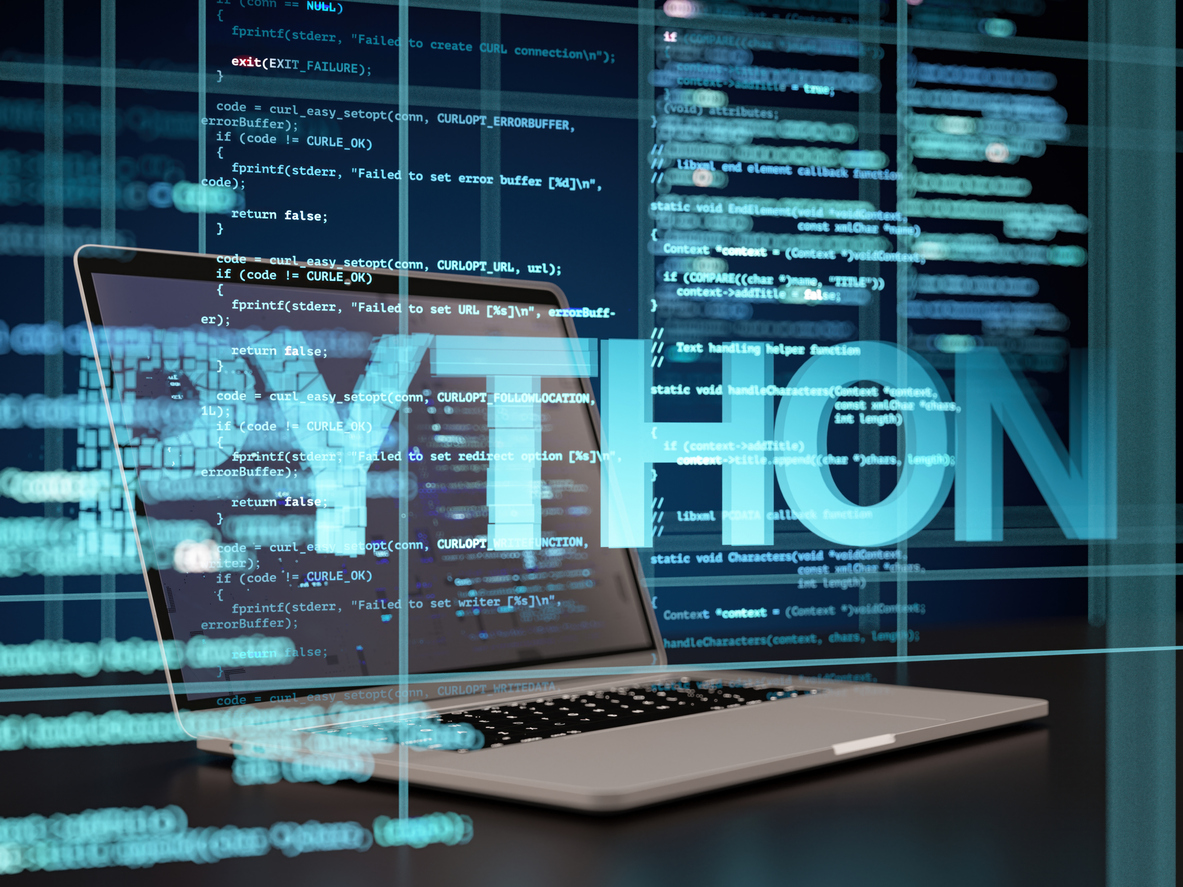Traditional computational biology relies on rule-based modeling and deterministic algorithms. AI brings adaptive learning – models that spot patterns in data rather than predefined equations. This way, systems can detect molecular or genomic correlations that conventional approaches might overlook.
AI in biotech: Application, specifics, and challenges

 12 minutes read
12 minutes read
Content
Algorithms are now essential research and analytical tools in biotech, alongside laboratory instruments, and AI has for sure changed the future of biotechnology. It’s being used for designing new molecules, clinical outcome interpretation, and detecting patterns hidden across terabytes of experimental data. Numbers prove the trend: more than 70% of biopharmaceutical companies have already incorporated AI into at least one stage of research and development (R&D). It finds applications on different stages, from early discovery to clinical validation, making laboratories more and more digital.
This article explores AI and biotech, and the technical, ethical, and economic context of this combination.
Drug discovery and preclinical development
The previous decade of biotechnology was all about automation. This one is defined as Artificial Intelligence Biotech. The best example is drug discovery: the most resource-intensive stage of pharmaceutical development. While traditional methods depend on large-scale screening, complex chemistry, and long trial-error cycles, AI brings new optimistic possibilities. Let’s explore them.
Role of AI
Not so long ago, the drug discovery process required years of manual screening and millions (and billions) in investment. Now, there are data-driven models that evaluate chemical and biological interactions in silico. AI identifies potential drug targets to simulate how compounds will behave in the human body.
AI systems go even further. They analyze molecular data, predict protein-ligand binding affinities, and prioritize candidates for lab validation. They detect patterns within high-dimensional datasets that are too complex for traditional statistical models. Instead of testing millions of molecules, scientists can narrow the search to a few hundred with the highest probability of success.
Essential techniques
There are numerous examples of AI techniques in preclinical biotech development services. However, some of them have become industry standards. Those are:
- Supervised machine learning – used to classify compounds, predict biological activity, and assess ADMET (absorption, distribution, metabolism, excretion, and toxicity) profiles based on historical data.
- Deep learning architectures – convolutional neural networks (CNNs) and recurrent neural networks (RNNs) that model complex non-linear relationships in molecular and biological datasets.
- Reinforcement learning (RL) – applied in generative chemistry, where AI agents iteratively design and test molecules to optimize specific properties such as potency or stability.
- Natural language processing (NLP) – used to extract knowledge from scientific literature, patents, and clinical reports, allowing AI systems to connect published data with laboratory outcomes.
Small molecule and biologics generation
De novo molecule generation is one of the most visible applications of AI in biotechnology. It is the process of creating novel chemical structures from scratch, using algorithms to meet specific desired properties.
Generative AI models, such as VAEs and diffusion systems, learn patterns from existing data and use them to design new molecules with useful medical properties. This method isn’t limited to small chemical compounds; it also applies to biologic drugs like antibodies and peptides. By learning from large protein databases, AI systems can design new binding regions that attach to their targets more precisely than those found in nature.
Compound optimization
Beyond creating potential drug candidates, biotech AI helps scientists improve them. It can balance many factors at once: how strong the drug is, how safe it is, how selective it is, and how well it moves through the body. In the past, researchers relied mostly on trial and error to reach this balance. Now, AI models use simulations to test different possibilities, suggesting small chemical changes that keep a drug effective while making it safer or easier for the body to absorb.
The role of AlphaFold
Few discoveries have changed modern biotechnology as profoundly as DeepMind’s AlphaFold. Released in 2021, this AI system can predict the 3D shapes of proteins just from their amino acid sequences. Scientists had struggled with this for more than fifty years.
AlphaFold’s public database now includes over 200 million protein structures, covering almost every known protein on Earth. This resource is open and gives researchers a look at how proteins fold, interact, and sometimes malfunction. It opens doors to understanding diseases and finding new drug targets quickly, without months of complex lab experiments.
In a nutshell, AlphaFold made drug design far more precise. Instead of guessing how a molecule might fit its target, scientists can now design drugs to match specific binding sites predicted by AI. Numerous pharmaceutical companies have already built AlphaFold data into their research pipelines. They use it on early discovery to identify promising compounds and reduce costly trial-and-error in the lab.

Application across other biotech areas
Genomics and personalized medicine
Today, biology has become as much about data as it is about living systems. Thanks to advances in DNA sequencing, scientists can now map a person’s entire genome for less than $200. In comparison, this task used to cost nearly $100 million twenty years ago.
Machine learning models scan billions of DNA letters to spot patterns that humans could never see. They can link specific genetic variants to diseases, estimate a person’s inherited risks, and even predict how a patient might respond to certain drugs. Deep learning systems such as DeepVariant and Enformer go further – they can read DNA sequences and predict how small changes might affect gene activity or protein function.
This shift makes medicine more personalized; treatments get tailored to the unique biology of each patient. Hospitals and biotech software development companies now use AI predictions to choose the most effective therapies for cancer, heart disease, and rare genetic conditions. According to data from the last year, nearly 65% of precision medicine initiatives use AI-based analytics in genomics and molecular diagnostics.
Synthetic biology and biomanufacturing
Synthetic biology combines biology and engineering. It designs living cells that can make useful products, from medicines and materials to sustainable fuels. AI has become a critical partner in this process. It helps scientists predict how changes in a cell’s DNA will affect its behavior and stability long before the beginning of any lab experiment.
Using ML, researchers can simulate how a cell’s metabolism will respond to genetic tweaks, finding the best way to balance high yield with healthy growth. Companies like Ginkgo Bioworks and Zymergen already use AI-powered platforms that test thousands of possible DNA designs virtually. Only the most promising designs move forward to the lab.
In biomanufacturing, reinforcement learning systems now monitor fermentation tanks in real time, predicting growth rates, nutrient levels, byproduct accumulation, and more. When something drifts off course, the system adjusts conditions automatically. It’s like an autopilot for living factories.
Diagnostics and medical imaging
In medical diagnostics, AI is helping doctors spot tiny patterns in scans or lab results that reveal the earliest signs of disease. Deep learning models now analyze X-rays, CT scans, and tissue images with accuracy of an expert radiologists. In some studies, these systems have reached over 90% sensitivity in detecting cancer in breast and lung images, catching problems long before they become visible to humans.
But AI’s abilities extend beyond images. It can also interpret complex biological and clinical data. By combining information from genetic sequencing, lab tests, and electronic health records, AI models can predict how a disease might progress, identify patients at higher risk, and help doctors choose the best treatment plan. For hospitals and laboratories, this means faster diagnoses with fewer errors and more consistent care.

Challenges and limitations of applying AI in biotech
While being incredibly beneficial, the AI application in such a regulated and specific field as biotech comes with challenges. They are often related to the nature of biological data, the complexity of AI models, and regulative norms.
Data quality and quantity
The data that AI systems are trained on is often incomplete or inconsistent. Experiments occur with different samples, in different conditions, and on different equipment, and the results are hard to standardize. Besides, it’s not rare for clinical data to be biased. Patient groups in studies don’t always reflect global diversity, and the predictions, consequently, can’t be one hundred percent reliable.
Public databases such as GenBank, EMBL-EBI, and the Human Protein Atlas have made more data available to researchers, but many datasets are still locked behind company firewalls or stored in incompatible formats. Because of this, an AI model that performs well on one dataset might fail completely when tested on another.
Interpretability
Another major issue is that biotech AI models can make highly accurate predictions, but not explain why. This creates understandable hesitation in both the scientific and regulatory communities, especially when algorithms are used to guide real medical or pharmaceutical decisions.
Imagine a neural network that predicts whether a new compound might be toxic or whether a tumor is malignant. Even if its predictions are correct, it might not reveal how it reached that conclusion. To solve this, researchers are working on explainable AI (XAI) techniques – tools like attention maps and feature attribution methods that highlight which factors influenced the model’s decision.
Generalizability
One of the hardest problems in biotech AI is ensuring a model trained in one setting generalizes to another. Biological systems vary: cell lines differ and lab conditions and patient populations change. As a result, a model that performs perfectly on its training data might struggle with new or slightly different data.
To solve this, scientists retrain models on smaller, task-specific datasets that better reflect the real-world conditions where they’ll be used. However, this process only works if the data are high-quality and biologically similar to the original training material.
Validation
Every algorithm must prove itself in the lab or clinic before it’s considered trustworthy. That validation process is slow, expensive, and resource-heavy. It requires biosamples, controlled environments, regulatory oversight, time, and money. But it can’t be neglected and is essential for confidence in AI-assisted research.
AI is evolving far faster than traditional laboratory science, and this speed creates a growing gap between digital prediction and physical validation. Closing that gap will require integrated workflows, where computer simulations and real-world experiments happen side by side instead of one after another.
Ethical, regulatory, and economic concerns
While we know what AI can do, there are also things it should do in the context of ethics, regulation, and economics.
Ethical issue
AI systems that process biological data, particularly genomic and clinical information, must ensure that predictive accuracy does not come at the cost of personal confidentiality. Anonymization, controlled access, and consent tracking of data are an ethical baseline for AI-driven biotechnology.
Another ethical issue is related to an algorithmic bias. Models trained on incomplete or non-representative datasets can produce skewed results. This, in turn, leads to unequal consequences. For example, if a genomic dataset underrepresents certain group of population, disease risk predictions for that group might be inaccurate.
Ethical frameworks such as the OECD AI Principles and the WHO Guidance on Ethics & Governance of Artificial Intelligence for Health emphasize transparency, accountability, and inclusivity. In practice, this means biotech firms are increasingly incorporating AI ethicists and data governance officers into their research teams.
Regulatory
For AI to become a routine component of drug development or diagnostics, it must meet the same evidentiary standards that govern other biomedical technologies. However, traditional approval pathways were designed for chemical compounds and medical devices, not for adaptive algorithms that evolve over time. To address this challenge, regulatory agencies are now developing corresponding policies for AI development companies.
The U.S. Food and Drug Administration (FDA) has introduced the Good Machine Learning Practice (GMLP) framework, outlining principles for model transparency, training data documentation, and version control. In the European Union, the AI Act classifies AI systems used in healthcare and life sciences as “high-risk,” subjecting them to stringent performance and data-integrity audits.
The problem is, a company operating in both the U.S. and the EU may face conflicting requirements for model validation and documentation. To address this challenge, industry coalitions, such as the Alliance for Artificial Intelligence in Healthcare (AAIH), are proposing unified standards for algorithmic oversight.
Economic impact
For large pharmaceutical companies, the economic appeal lies in efficiency: fewer failed compounds and faster development timelines. For smaller firms, AI in biotechnology lowers barriers to entry. Open-source frameworks, cloud-based platforms, and collaborative research ecosystems enable startups to use high-end computational tools without the need for extensive infrastructure.
However, these gains come at a cost. Building and maintaining AI models requires computational power and specialized experts. The cost of training large models or securing compliant cloud environments can offset short-term savings if not managed strategically. Responsible and successful organizations balance automation with human expertise. They turn to AI to prioritize research directions while keeping decision-making in human hands.
Conclusion
While this might sound like a cliché, the adoption of AI in biotechnology has truly reshaped the research. AI and biotech are demonstrating impressive results: discovery timelines have become shorter, predictions have become more reliable, and the level of experimental uncertainty is much lower. Yet, the effectiveness of AI in biotechnology depends on the people who control the algorithms – biotech AI companies that understand the industry’s needs, regulations, and specifics. We are such people; contact us to discuss our experience with AI for biotech.
FAQ
What sets AI in biotech apart from traditional computational biology?
Can AI improve CRISPR gene editing design?
Yes. AI biotech companies use models to predict off-target effects, assess guide RNA efficiency, and suggest edits with higher precision. Tools like DeepCRISPR and CRISPR-Net analyze genomic context to help researchers design safer and more efficient gene editing strategies.
How reliable are AI-based diagnostic systems?
When trained and validated properly, AI diagnostic models achieve accuracy comparable to, and in some cases exceeding, expert clinicians. For instance, FDA-cleared tools like IDx-DR for diabetic retinopathy demonstrate over 85–90% sensitivity in clinical settings (FDA, 2023).
What are the key AI applications enabling personalized medicine?
Predictive models link genetic variants to drug responses, helping identify which treatments will be most effective for a given patient. AI also supports adaptive clinical trial designs, where real-time analytics adjust protocols based on emerging patient data.
How does AI handle multi-omics data?
AI integrates data from genomics, proteomics, transcriptomics, and metabolomics to reveal how molecular networks interact. Deep learning models such as variational autoencoders or graph neural networks correlate these layers, enabling researchers to predict phenotypic outcomes or therapeutic targets from integrated datasets.
Is AI for biotech accessible to small startups?
Yes. Cloud computing, open-source frameworks, and modular APIs have made AI-driven drug design and data analysis attainable for startups without in-house infrastructure. Many early-stage biotech firms now outsource model training or use hybrid collaborations with academic institutions.
How much time and cost does AI save in drug discovery?
Estimates from McKinsey and BCG suggest that AI-assisted pipelines can cut discovery time by 40–60% and reduce early-stage R&D costs by up to 30%. This is achieved primarily through automated target identification and virtual screening.
Which AI techniques are most widely used today?
Machine learning and deep learning dominate, with increasing adoption of transformer architectures for sequence modeling and generative AI for molecule and protein design. Reinforcement learning is also gaining traction in optimization tasks such as compound refinement or process control.
















































































